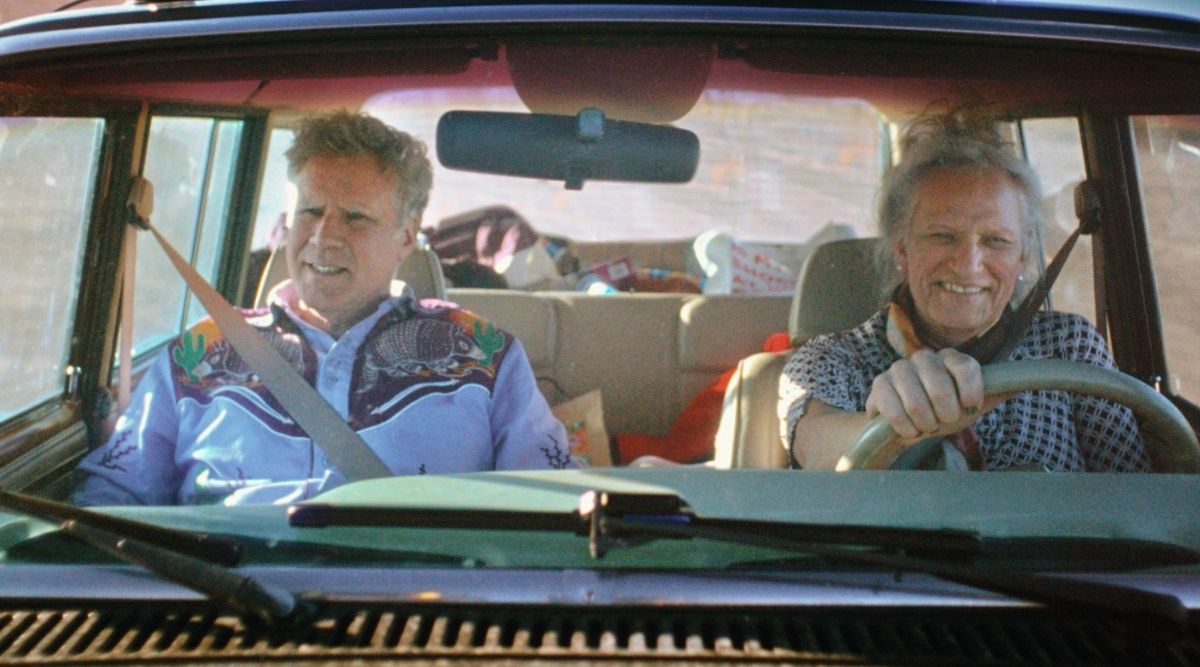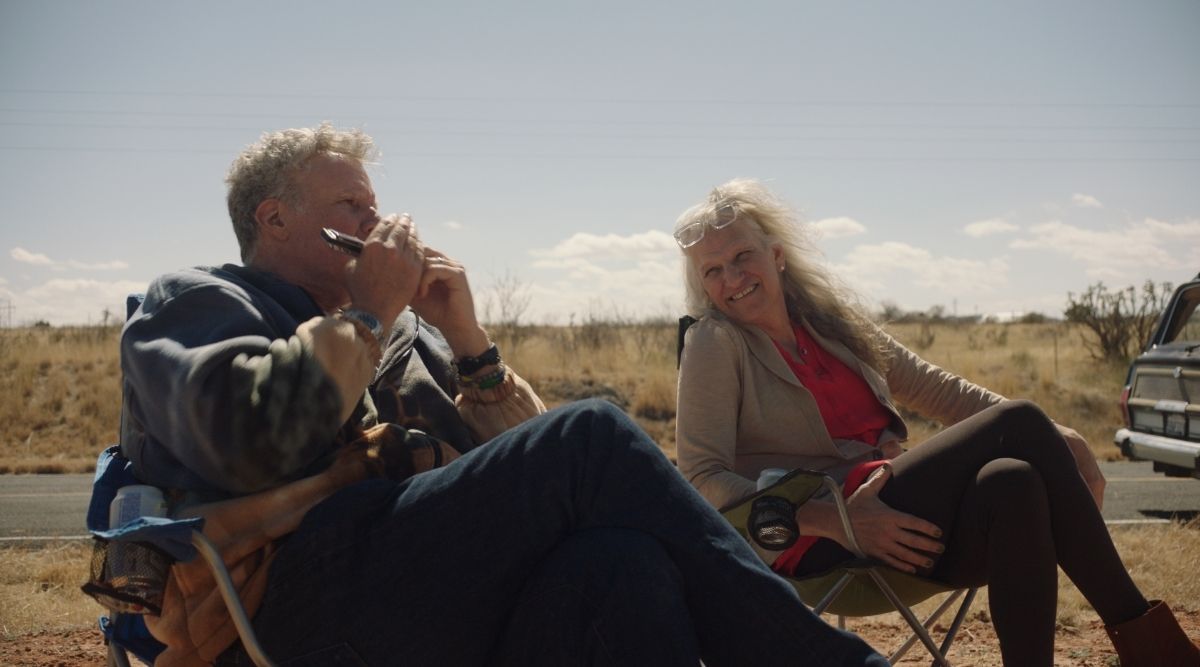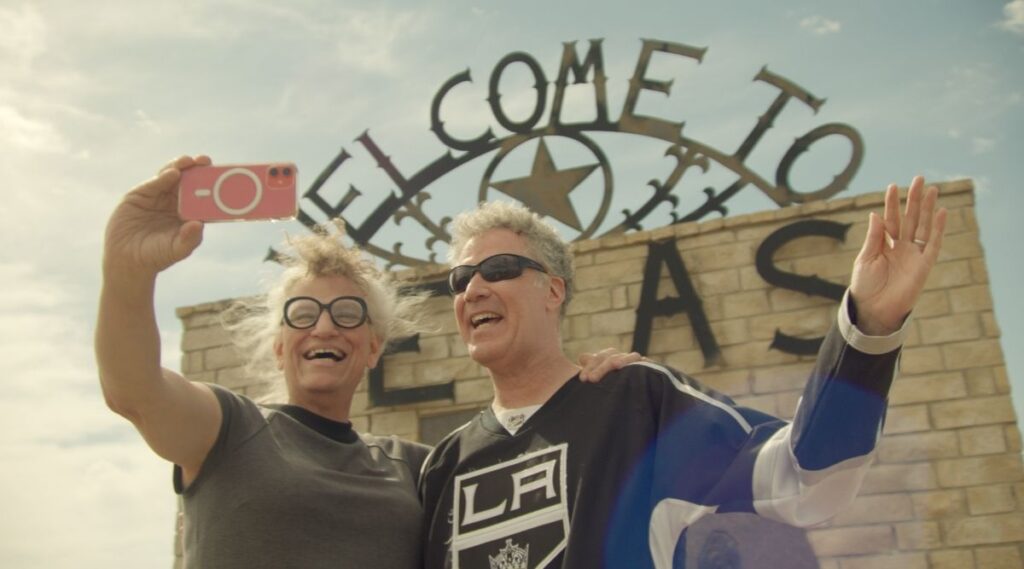Netflix’s Will and Harper follows two close friends who haven’t seen each other in years as they embark on a cross-country road trip together to reconnect and deepen their bond. One of them just happens to be Will Ferrell, and the other just happens to be Harper Steele. Will and Harper have been close friends for decades, working together at SNL and beyond. But they hadn’t seen each other since Harper transitioned, so the two decide to go on a cross-country road trip where no questions are off limits and the two can reconnect now that Harper is out.
Two things about Will and Harper should be obvious, and the film alludes to this slightly, but it bears repeating nonetheless. Foremost, these are two totally privileged people. Will says it himself. They’re white, well-off, have loads of dear friends and family, and Will is incredibly rich and famous. This road trip will be colored by that reality no matter what. But that doesn’t make the experience they have any less valid. It’s an exaggerated example of what life across the country looks like for trans women, but it’s a glowing example nonetheless.
Second, Will and Harper is somewhat more focused on Will’s experience, his questions about Harper, and how he responds to her experiences across the country than it is focused on Harper’s. In part, it’s their personalities. Will is gregarious and Harper is more shy. In part, it’s Will’s male privilege and his naturally, if inadvertently taking up more space in conversations with Harper, even when the conversation is and should be about her feelings or her experience. This isn’t to say that he doesn’t give her the space to express herself or share what she’s going through, he just butts in a lot to share his feelings or cry for himself.
Initially, it’s frustrating because the story doesn’t feel like it should be about him. He’s the rich and famous friend who should be listening to Harper and going along on her journey. The whole road trip was conceived based on the fact that Harper drove solo across the country countless times pre-transition. She loves the seedy bars and the random pit stops. But post-transition, she doesn’t feel confident she can enjoy those things anymore, fearing for her safety or even just her discomfort in some of these traditionally masculine spaces.

Will and Harper absolutely gives Harper the space to experience being trans in all the situations she was hoping to along the trip. Having Will along for the ride provides a safety blanket she can always fall back on if a situation gets too uncomfortable or unsafe. But the documentary isn’t necessarily about Harper discovering herself across America. It’s really more focused on Will discovering who his close friend really was all these years.
It’s a perspective that will undoubtedly help the middle-aged cis-male demographic turn on and connect with the documentary in the first place. Centering Will’s emotional journey and the way that he thinks about, acts around, and talks to Harper over the two weeks they’re together makes it easier for the target audience to come along for the ride because they can see themselves in Will. And in its own way, this is good. Part of the necessary equation to cement trans rights and normalcy in our country will require regular middle-aged cis people to see a story like this, be moved by Will’s love for his friend, and realize that Harper is just Harper.
However, the documentary still leaves you wondering whether centering Will’s experience less could have been even more powerful. One of Will and Harper’s greatest strengths is the way it never makes assumptions or judges the people of Middle America. Across their journey, Harper and Will meet strangers in bars with Confederate flags who love them to pieces and bystanders in statehouses who say horrible things about them both.
They encounter horrible, hateful governors in public and hang out with another older trans woman all night in a small town bar. It quickly and smoothly demonstrates that transphobia isn’t inherent anywhere or localized to any one part of the country any more than love and acceptance are.

But every time the pair has a difficult encounter that makes Harper uncomfortable, Will internalizes it as something he did wrong. That he should have said something differently, or acted differently, or defended Harper in some way, or been more aware of who they were talking to or where they were.
At first, this is fine. It’s a totally normal response for somebody who cares about their friend and has no experience traveling with somebody who recently transitioned. The way the friends make it clear from the start that no questions are off-limits and no hurtful statements will be taken personally because they’re both still learning is powerful.
But by the second or third time Will gets into the car and bemoans or cries about Harper’s experience, it’s a little old. It’s not to say that Harper had a responsibility to explain to Will that it wasn’t about him and he should let her emotions take prescient. That’s not her job and it goes against the whole point of the experience Will and Harper are having.
But for the sake of documentary-making, it would have been heartening to see Will grow in that way over time, centering his experience and emotions less and focusing more on how Harper was feeling. And maybe that’s how the friends felt about their journey, it’s just not edited that way.
Regardless, Will and Harper is a fun time with two friends. It’s wonderful watching them reconnect and deepen their bond now that Harper is out. Hopefully, it will inspire a wide audience to think of trans people more openly, at the least, and to love their own friends more deeply. Despite some shortcomings in the way their conversations are framed, it does an excellent job showing that trans people are everywhere and so are people willing to accept and love them, all across this beautiful, hateful country.
Will & Harper is playing now in select theaters and will be streaming exclusively on Netflix September 27th.
Will & Harper
-
Rating - 7.5/107.5/10
TL;DR
Will and Harper is a fun time with two friends. Despite some shortcomings in the way their conversations are framed, it does an excellent job showing that trans people are everywhere and so are people willing to accept and love them, all across this beautiful, hateful country.





